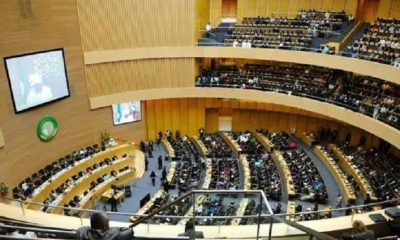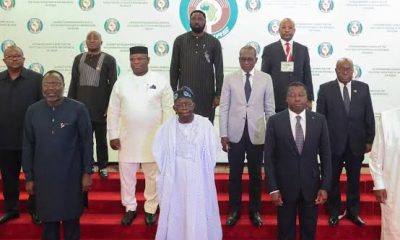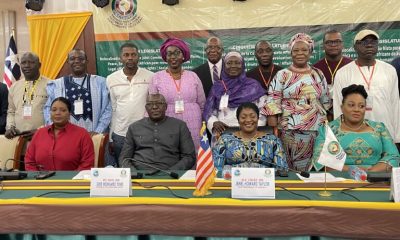Foreign
Don urges ECOWAS, AU, UN to ensure stability in African states

Prof. Jonah Onuoha, a don, has called on ECOWAS, African Union (AU) and the United Nations (UN) to take strategic measures to stop African states from being made vulnerable to the use of foreign mercenaries.
The don said the use of foreign mercenaries had the capacity to destabilise legitimate governments in Africa.
Onuoha, a professor of International Relations and Head of Political Science Department, University of Nigeria, Nsukka, expressed this thought in an interview with the News Agency of Nigeria (NAN) in Abuja.
He decried the use of foreign mercenaries and private armies by some African governments, saying by so doing democracy would in Africa would be threatened.
He expressed concern about a situation whereby a number of West African have engaged Wagner mercenary group, which staged a short-lived mutiny in Russia last month, to run their state security affairs, pondering their future.
Wagner is a well-known private army that provides security muscle for governments in the Central African Republic and Mali respectively.
Recently the United States imposed sanctions on three Malian officials, including the defence minister, accusing them of making their people vulnerable to Wagner’s “destabilising activities and human rights abuses” while helping it fund its operations in Ukraine.
In May, the military leader of Burkina Faso rejected an accusation by the president of neighbouring Ghana that it too had hired Russian mercenaries.
According to him, the use of mercenaries is not only peculiar to French-speaking countries, but has become a global trend such that states now do not trust their military anymore.
Onuoha said, “The struggle is not going to be easy for any sovereign state. It is an issue that ECOWAS, AU, UN should start thinking about seriously.
“Sovereign states will not be able to contain private armies in Africa. It is difficult for sovereign states to contain activities of private armies, many of them are sponsored from outside.
“It is the duty of international organisations to sit down and begin to find out how to contain the issue at the regional and continental level.
“ECOWAS must have a meeting, call member states to order and find a way to contain the use of private armies across Africa.
”UN must do so globally; AU must do so for Africa because these armies are getting stronger than the sovereign states and then, if something happens, anytime they want to take over government, they will take over.”
He added: “Why look outside when your country is in trouble?
“There is the need for regional bodies to sit round the table and find ways to contain their excesses, otherwise private armies will be the bane of security in the next five to ten years.”
Onuoha, who is also the Director of the Centre for American Studies, and the pioneer President of Abia Forum Nsukka (AFN) said that private armies were capable of toppling any government where discord ensues between them and their employers.
“What is happening in Africa is condemnable.
“In most cases you find that governments that are supposed to be fighting militancy or private armies end up cooperating with them because they cannot defeat them.
“They cooperate with them and use them to cause confusion and to punish their real or imagined enemies, or even win elections and these private armies get stronger and stronger, which is wrong.”
Foreign
3 teens arrested in Germany for allegedly plotting terror attack
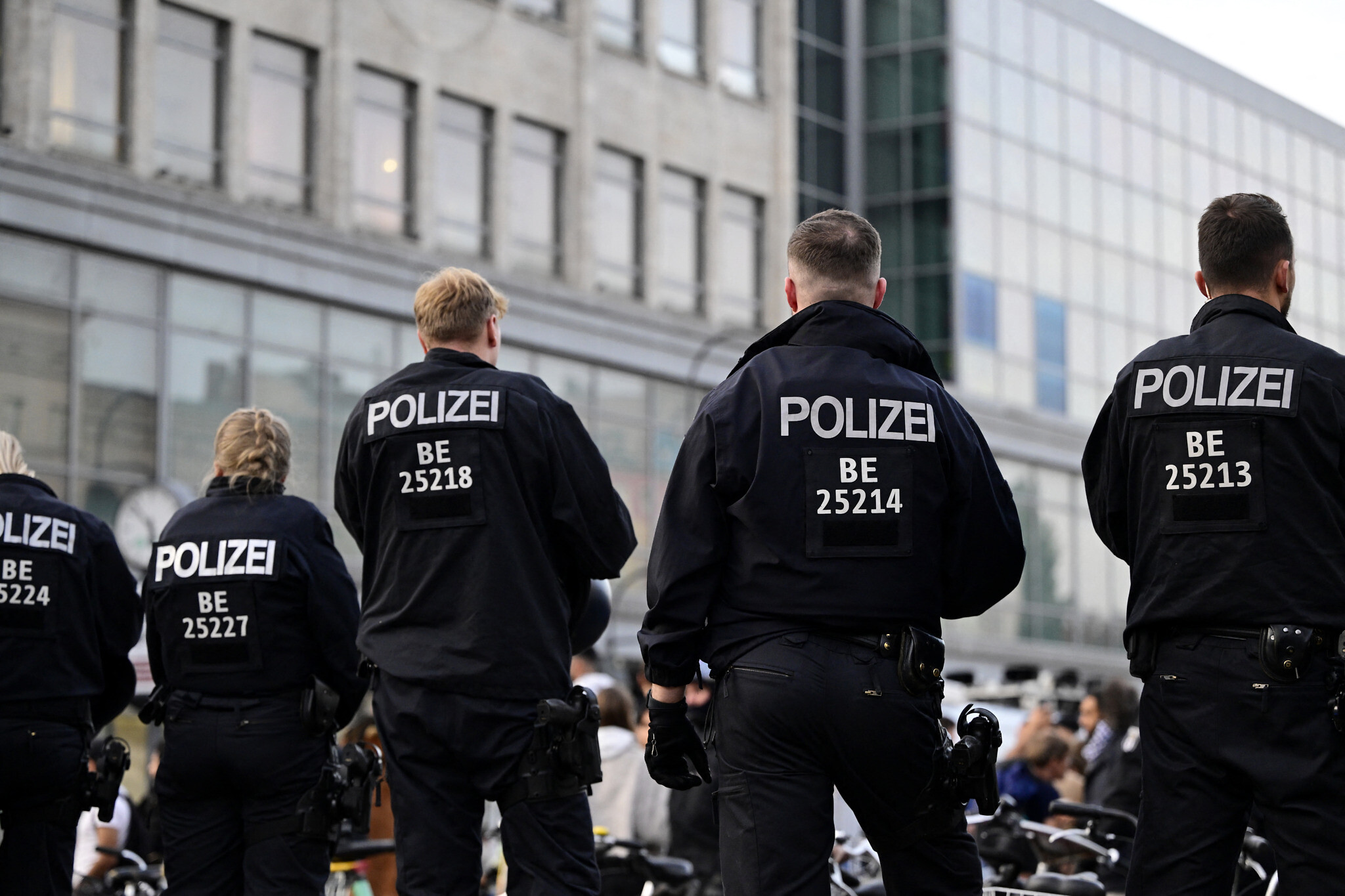
German authorities have arrested three teenagers aged 15 and 16 on suspicion of plotting a deadly Islamist terrorist attack in the western German state of North Rhine-Westphalia, prosecutors said on Friday.
The state’s Central Office for the Prosecution of Terrorism (ZenTer NRW) sought an arrest warrant for the teenagers over the Easter holiday.
They were suspected of plotting a terrorist attack in accordance with the aims and ideology of (extremist militia organisation) Islamic State.
The detained suspects are a 15-year-old girl from Dusseldorf, a 16-year-old girl from the Märkischer Kreis district and a 15-year-old boy from the Soest district, located about 100 kilometres to the east of Dusseldorf.
A fourth suspect has reportedly been identified in the south-western German state of Baden-Württemberg, and the local court there has issued an arrest warrant.
According to the investigators, the teenagers are accused of having agreed to commit murder and manslaughter.
This is in conjunction with the preparation of a serious act of violence endangering the state.
The presumption of innocence applied in all stages of the proceedings.
Security sources told newsmen that the young people had formed a chat group, but had not drawn up a concrete attack plan for a particular time and place.
However, sources said the cities of Dortmund, Dusseldorf and Cologne were discussed as targets, and attacks with knives and Molotov cocktails on people in churches or police officers in police stations had been considered.
The sources said authorities had also conducted searches as part of the investigation.
A machete and a dagger were seized in Dusseldorf, but no evidence of the construction of incendiary devices was discovered.
Sources said the father of the Dusseldorf suspect had already attracted attention from authorities in the past because he had allegedly collected donations for the Islamic State.
The investigators declined to reveal how the suspected terrorists were tracked down, but said that foreign intelligence agencies “did not play a role.”
Foreign
Putin Registers As Candidate For Russia’s Next Presidential Election
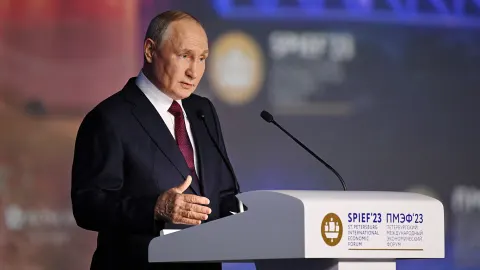
Russia on Monday officially recognised Vladimir Putin as a candidate for the presidential elections in March, a vote that he is all but certain to win.
The 71-year-old has led Russia since the turn of the century, winning four presidential ballots and briefly serving as prime minister in a system where opposition has become virtually non-existent.
The Central Election Commission said it had registered Putin, who nominated himself, as well as right-wing firebrand and Putin-loyalist Leonid Slutsky as candidates for the vote.
The election will be held over a three-day period from March 15 to 17, a move that Kremlin critics have argued makes guaranteeing transparency more difficult.
Following a controversial constitutional reform in 2020, Putin could stay in power until at least 2036.
Rights groups say that previous elections have been marred by irregularities and that independent observers are likely to be barred from monitoring the vote.
While Putin is not expected to face any real competition, liberal challenger Boris Nadezhdin has passed the threshold of signatures to be registered as a candidate.
However, it is still unclear if he will be allowed to run, and the Kremlin has said it does not consider him to be a serious rival.

